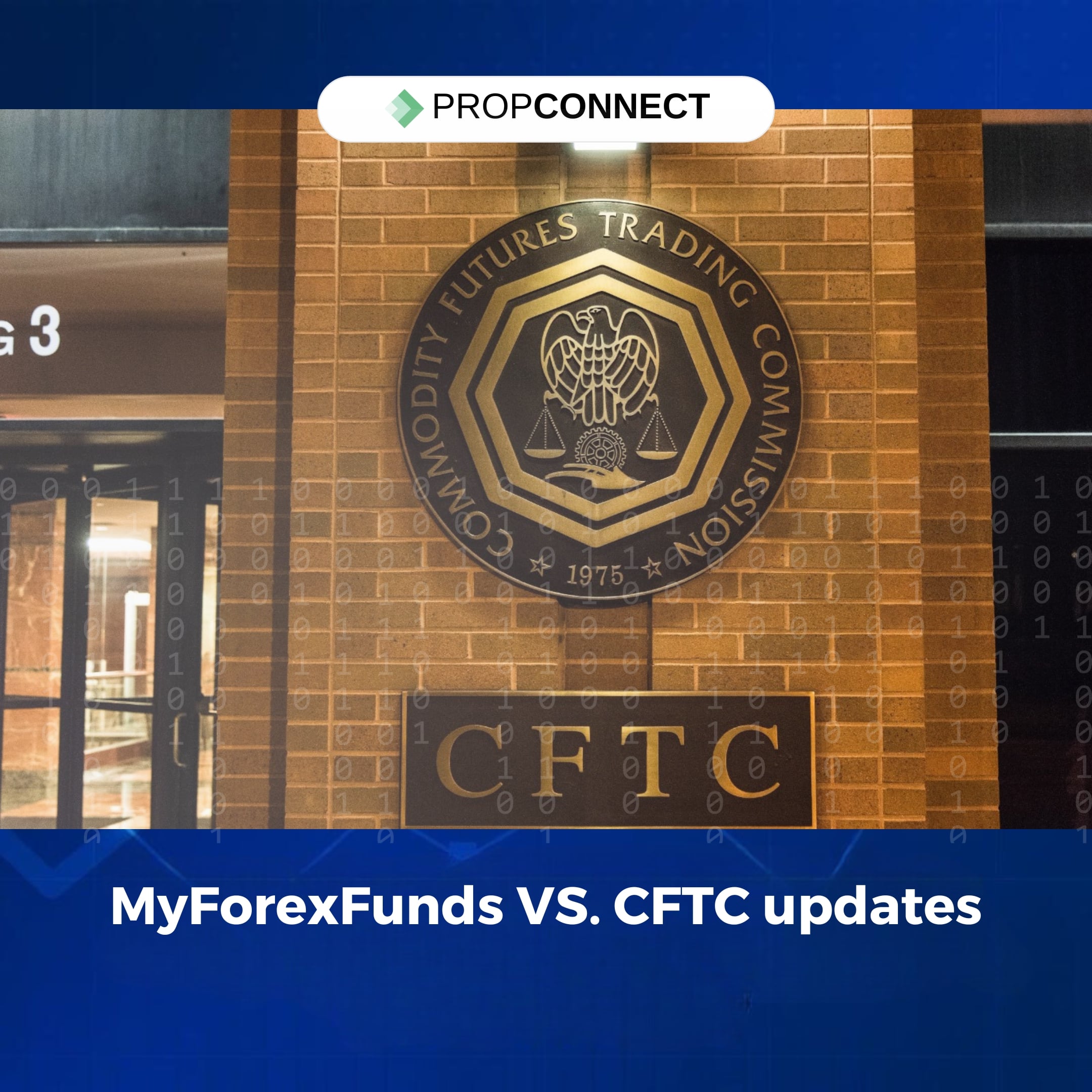Articles
MyForexFunds VS. CFTC updates
CFTC added that MFF’s customers should not be ECP because they are retail clients and were attracted through the general public by MFF through the website, and this did not require the customers to qualify as ECP

MyForexFund Vs. CFTC Updates
In the last hearing CFTC provided its prima facie to prove its jurisdiction and to show the claims against MFF we summarize these points:
A. Retail Forex Transactions:
Based on section 2(c)(2)(C)(i) of the Act, MFF most probably carried out retail forex transactions as evidenced by the CFTC according to its Prima Facie which includes also that the CFTC has a jurisdiction according to Section 2(c)(2)(C)(i)which provides that "the Commission shall have jurisdiction over any agreement, contract, or transaction in foreign currency that is, in relevant part: (a) offered to, or entered into with, a person that is not an eligible contract participant ("ECP"); and (b) offered or entered into on a leveraged or margined basis, or financed by the offeror, the counterparty, or a person acting in concert therewith."
On the other hand, CFTC added that MFF’s customers should not be ECP because they are retail clients and were attracted through the general public by MFF through the website, and this did not require the customers to qualify as ECP according to MFF to buy one of their program or trade.
CFTC sufficiently established that MFF conduct trades in a foreign currency on leverage with their clients. MFF pays customers when they win and in case of loss, they retain fees. MFF argued that they didn't enter into any transactions as no customer " invested" in an account with MFF and there is "no risk of loss" the refund or retain of fees in case of loss made customer didn't fact risk their fee.
About this argument, MFF says that the transaction never happened since most customer trades were conducted within a simulated environment. However, the transactions might have looked like simulations, yet the transactions were genuine. MFF takes the other side of these orders made by customers.
When winning, customers got their pay and MFF closed all the accounts of those customers whose bets were lost while they retained their fees for being in operation.
B) RETAIL COMMODITY TRANSACTIONS
Additionally, The CFTC has shown prima facie that MFF offered and entered into retail commodity transactions with clients. Therefore the commission has the jurisdiction according to the law articles.
C) RFED Registration
Points 3 and 4 in CFTC's complaint charge MFF with acting as an unregistered retail foreign exchange dealer or associated person. the capacity of RFED requires to notify and register with the Commission which MFF didn't comply with.
D) Off Exchange Trading:
Point 5 in CFTC's Complaint states that MFF engaged in impermissible off-exchange retail commodity transactions violating the law which provides that no person shall enter into any engagement, transact business, or perform any office in, or about, any commodities in the course of, or in connection with, executing retail commodity transactions, except when these transactions are conducted and executed on an exchange registered with the CFTC. MFF violated this section 4 of the Act and executed retail commodity transactions with its 'live account' customers as a counterparty which weren't executed on any CFTC–registered exchange.
E) Fraud:
Court opinion confirmed that the CFTC has satisfied the prima facie burden of counts one and two (the fraud-related ones).
In the court opinion, all five counts of charge have been confirmed. In the first count, the court noted that CFTC had demonstrated its prima facie.

